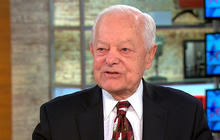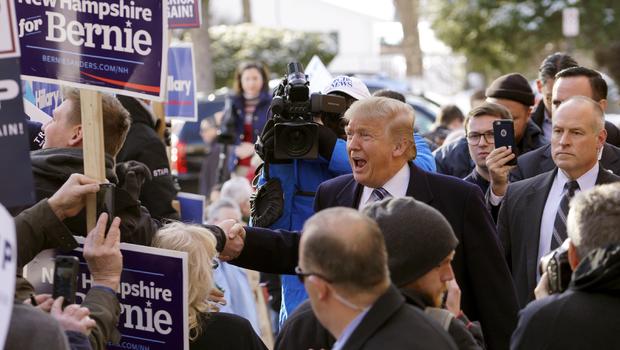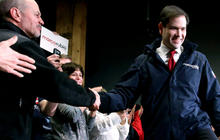The New Hampshire primary: What was on voters' minds?
Debates mattered in the Republican race in New Hampshire, more so than on the Democratic side, according to an analysis of CBS News exit polls.
- Live New Hampshire primary results
- Live Republican New Hampshire primary results
- Live Democratic New Hampshire primary results
While more than eight in ten Democrats said the recent debate was a factor in their vote, only 53 percent said it played an important role in their decision today. In comparison, 65 percent of Republican voters rated the Saturday's debate as important in their vote today. This finding is significant since Rubio came into the last debate with a good deal of momentum, but seemed to struggle against an onslaught of attacks from many of his opponents, especially Chris Christie.
Many New Hampshire Republicans made their decision about who to vote for in the final days just before the primary, while Democrats were more likely to have decided earlier, according to CBS News exit polls. Almost half of New Hampshire Republican primary voters -- 46 percent -- say they made their decision on who to vote for within the last few days. In fact, 22 percent say they made their decision Tuesday. On the Democratic side, just 22 percent made their decision within the last few days. Seventy-seven percent made up their minds before that.
The two parties also vary in terms of their interest with regard to how much experience the next president should have. Among the New Hampshire Republican primary voters, about half (48 percent) want a candidate with some political experience, while the other 47 percent would like the next president to be outside the political establishment. On the other side, the 71 percent of Democratic New Hampshire voters say the next president should have political experience.
In Iowa, the majority of those who sought an outsider supported Trump. Of those seeking a candidate with experience, Iowa voters supported Rubio and Cruz.
Both Democrats and Republicans agree that the economy and jobs, are key issues but more GOP voters are concerned about terrorism than Democrats. Slightly more Republicans see the economy/jobs (30 percent) as more important than both the government spending (27 percent) and terrorism (25 percent).
And one issue which has been a point of contention within the race for many of the GOP candidates, especially for Marco Rubio, ranks much lower as a concern: only 15 percent of GOP respondents chose immigration as the most important issue.
Income inequality and economy jobs are the top issues of concern to Democratic respondents (33 percent and 32 percent respectively), followed by health care (25 percent). While terrorism is a top concern of a quarter of the GOP respondents, just 8 percent of Democrats rate it as the most important issue.
Both Democrats and Republicans agree that a candidate's position on the issues is more important than their leadership qualities. Almost three quarters of Democrats said issue position (71 percent) was more important than leadership (27 percent) - a finding that is likely to favor Sanders. Similarly, on the Republican side, six in ten respondents said issue position is more important than leadership qualities (most important to 38 percent of people) - a finding that is likely to favor the more ideological outsider candidates, as opposed to those vying for the establishment lane.
When asked about their view of the way the federal government is working, 48 percent of Republican New Hampshire primary voters were dissatisfied but not angry, and 43 percent were angry. Meanwhile, 51 percent of Democratic primary voters were dissatisfied but not angry, and only 12 percent were angry. The majority of Democratic primary voters in New Hampshire (82 percent) do not feel betrayed by the Democratic party. Half of Republican primary voters said do feel betrayed by politicians from the Republican party.



